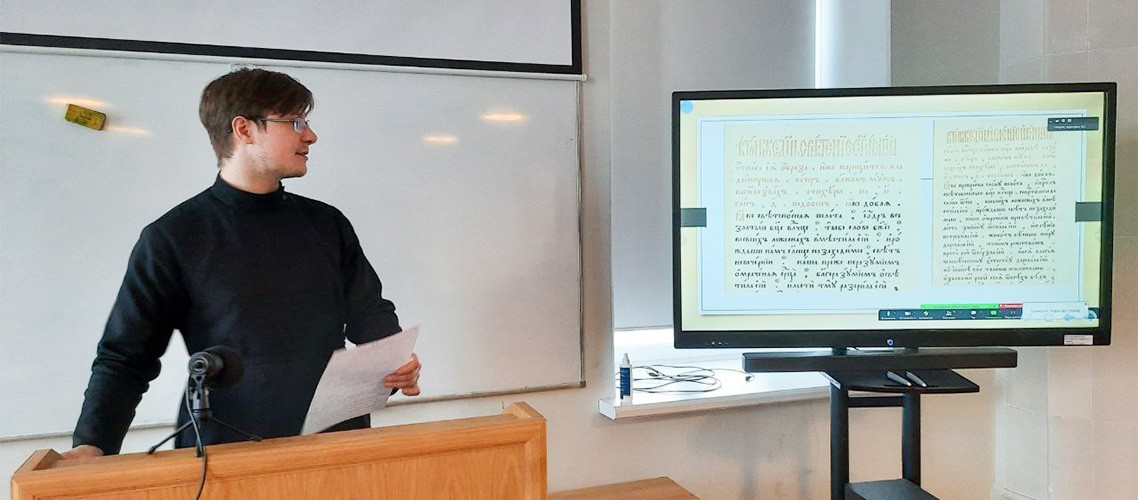
The Academy hosted a conference “Hermeneutics of the Christian text in Literature, Language, Art”
On December 8, 2023, the Department of Philology of the Moscow Theological Academy held the All-Russian scientific and practical conference “Hermeneutics of the Christian text in literature, language, art.” The scientific event was organized jointly with the Russian State Social University.
The plenary session began with a general prayer, after which the “Eternal Memory” to the recently passed by teacher at the Philology Department of the Moscow Theological Academy, Galina Nikolaevna Kulikova, was sang.
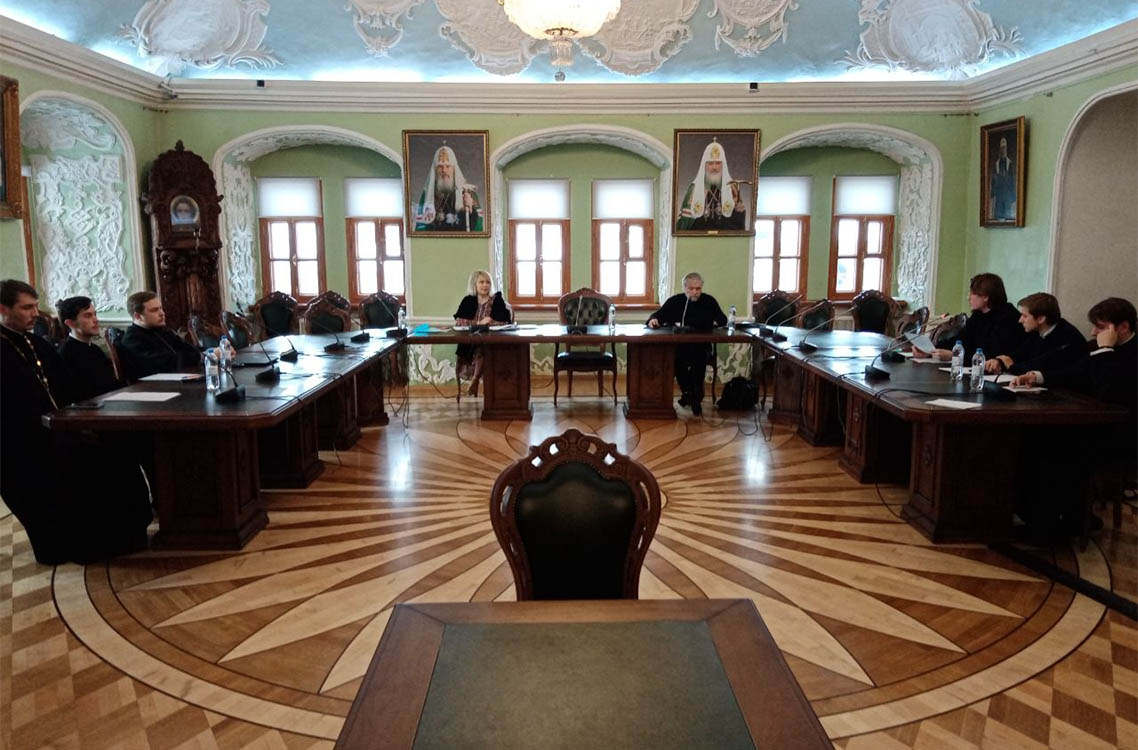
Priest Pavel Lizgunov, Vice-Rector for Academic Affairs of the Moscow Theological Academy, Vladimir Mikhailovich Kirillin, Head of the Philology Department, and Svetlana Vladimirovna Burmistrova, Associate Professor of the Moscow Theological Academy, Head of the Department of Russian Language and Literature at the Russian State University, said some welcoming words.
In his speech, Priest Pavel Lizgunov emphasized the importance of the conference, which is focused on understanding the Christian text and ways of expressing it in fiction, art and music. To get onto the depth of human culture, he noted, it is necessary to be able to adequately interpret biblical images and motifs embodied in literary texts and church traditions.
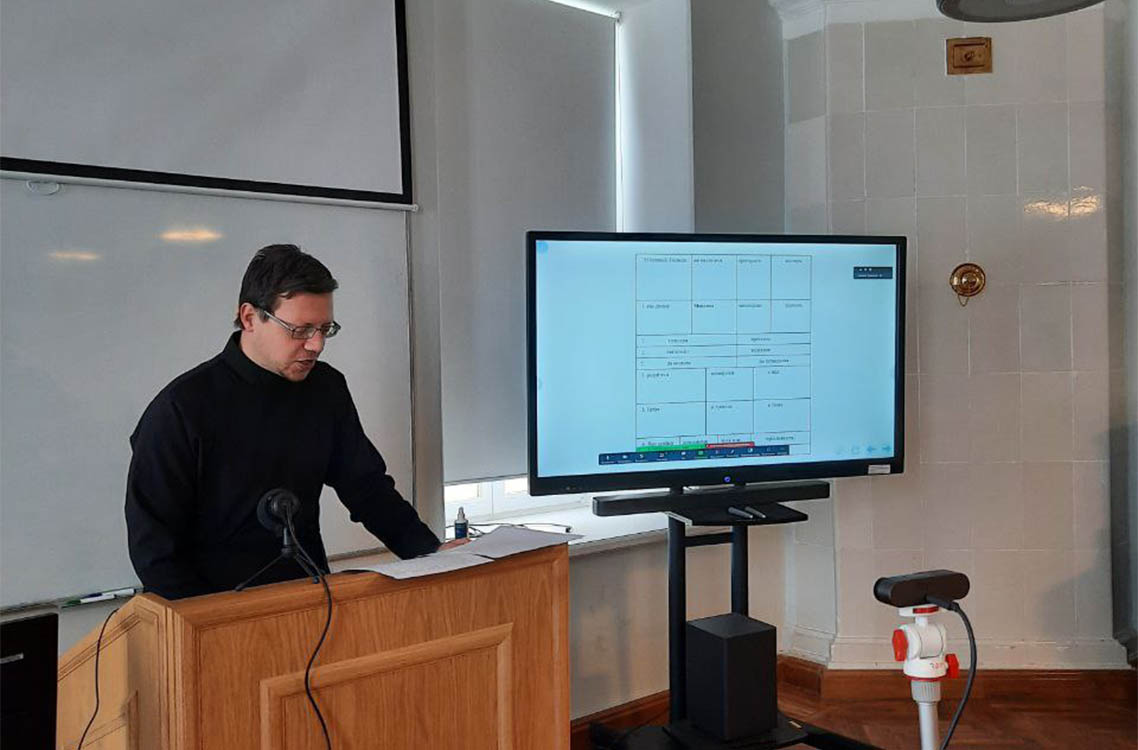
Vladimir Mikhailovich Kirillin also pointed out the relevance of the conference topic and cited an example from his teaching practice, which confirms that without the Christian context it is impossible to comprehend the Russian classical literature, for example, B. Pasternak’s poem “On Holy Week”, which begins with the following lines:
“It’s still dark all around.
It's still so early in the world,
That there are countless stars in the sky,
And each one is as bright as a day,
And if the earth could,
It would have slept until the Easter
By the reading of the Psalter."
Svetlana Vladimirovna Burmistrova thanked everyone for their interest, which for the fourth year in a row has brought together students and young scientists from many Russian universities. She especially noted that the conference was the first joint event with the Russian State Social University. She wished all conference participants productive work at the woking sessions and expressed hope that they would be able to exchange their experience and demonstrate different scientific approaches to Christian texts study in literature, language and art.
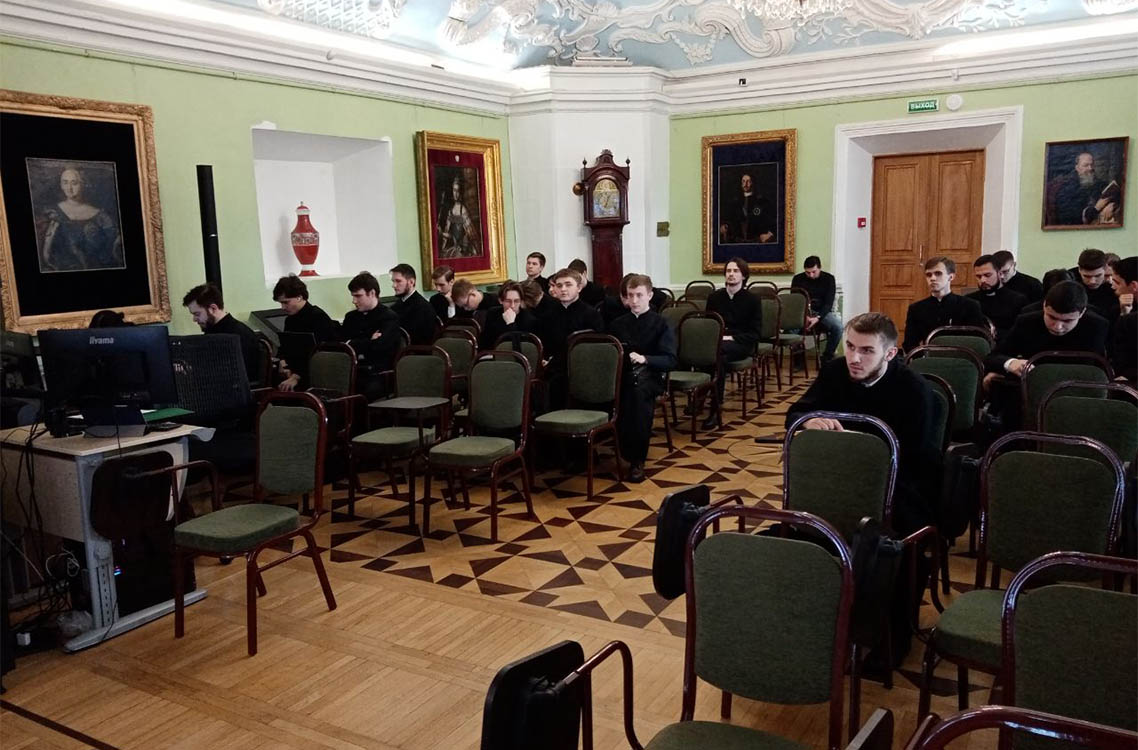
Overall, there were three sections, in which over thirty reports were presented.
The reports presented in the first two sections (“Religious issues of Russian literature” and “Religious issues of Russian and foreign literature and art”) touched on a wide range of topics. They included the patristic texts of Russian writers, the peculiarities of the image of a clergyman in Russian and foreign literature, the mythopoetic levels of Russian prose of the early XX century. A number of reports were devoted to the study of artistic and epistolary heritage of N.V. Gogol and F.M. Dostoevsky.
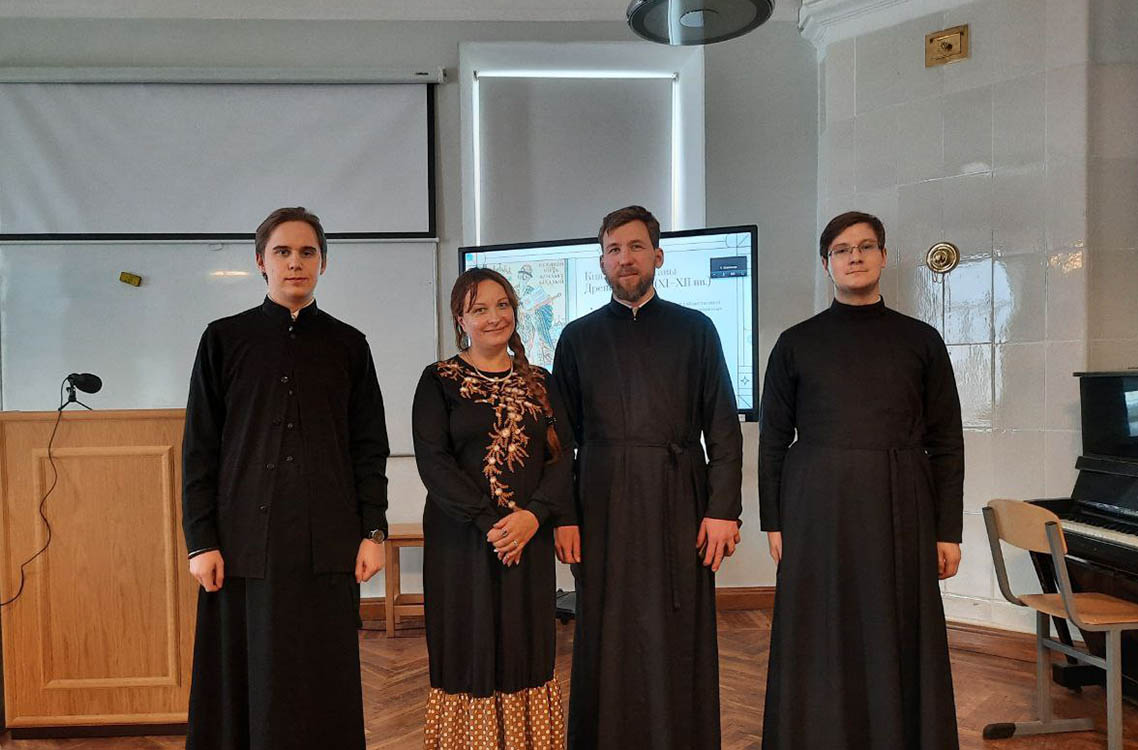
Participants were able to discuss a wide range of topical issues related to the study of Slavic-Russian church literature and Orthodox hymnography at the “Slavic-Russian church literature: History, Poetics, Theology” section. In particular, reports were presented on topics related to the study of the Glagolitic alphabet, ancient Russian law, hymnographic texts, as well as ancient and modern hagiography, etc.
All the given reports showed the certain depth of the material study, genuine interest and involvement of the listeners. Summing up the results, the participants shared their impressions and expressed gratitude to its organizers.
The results of the conference will be available later as a collection of scientific materials published by the publishing house of the Moscow Theological Academy.
MThA Press Office
